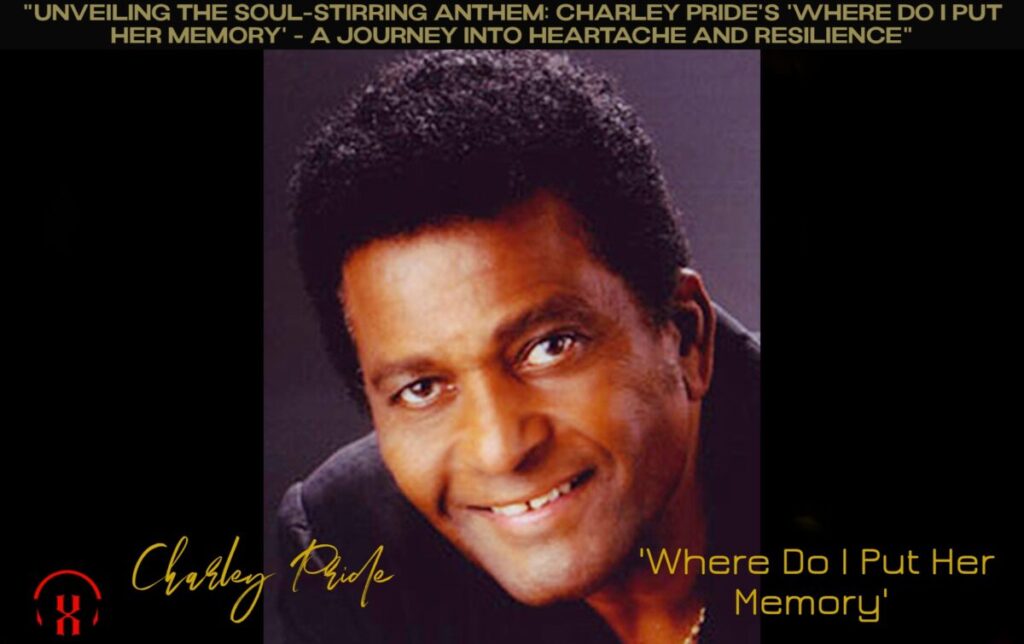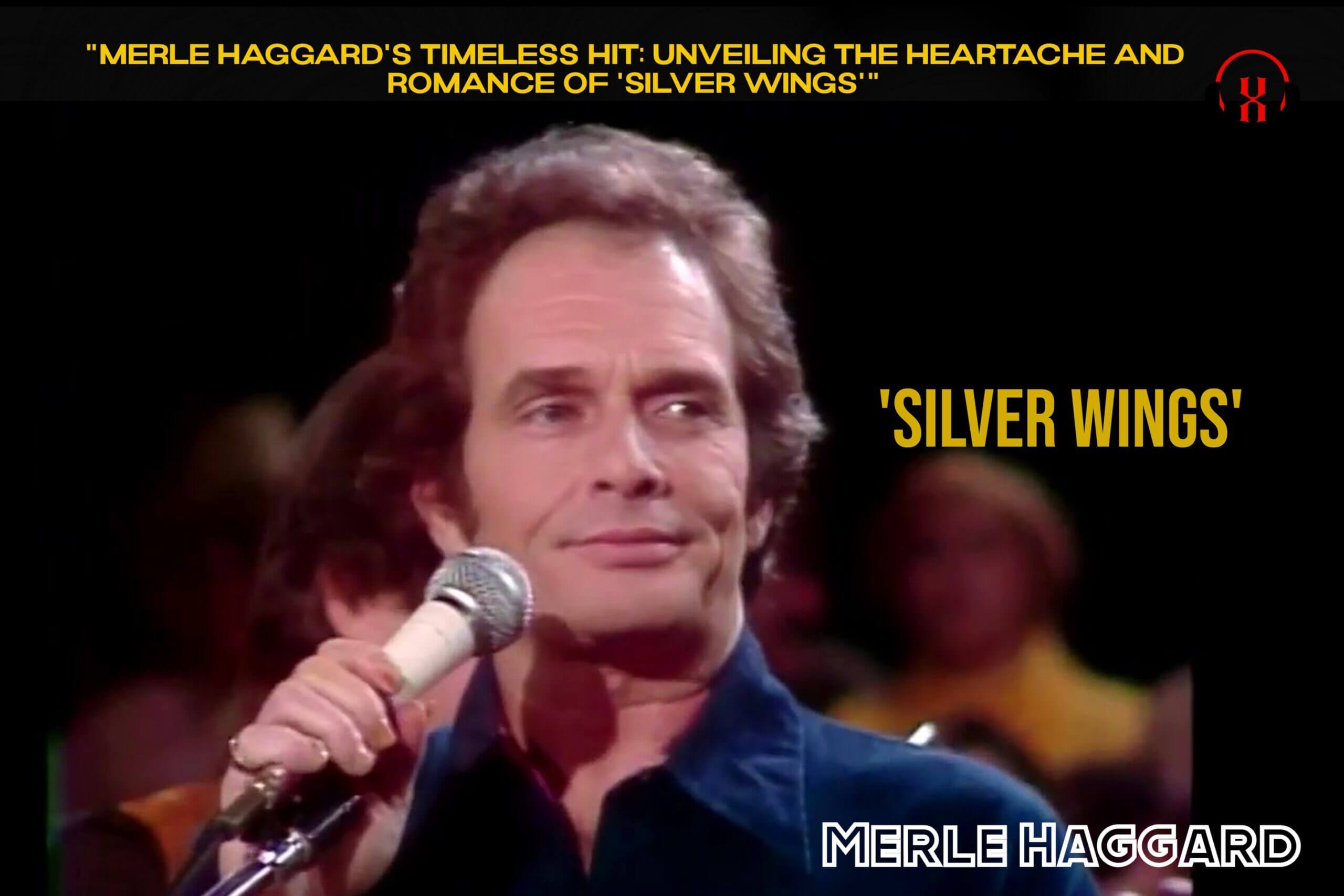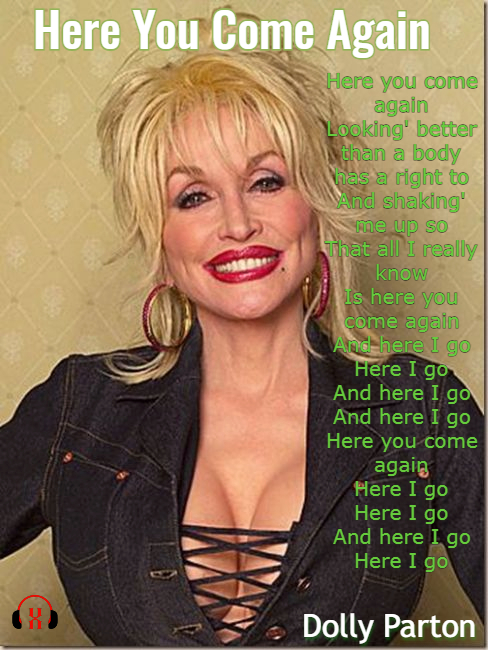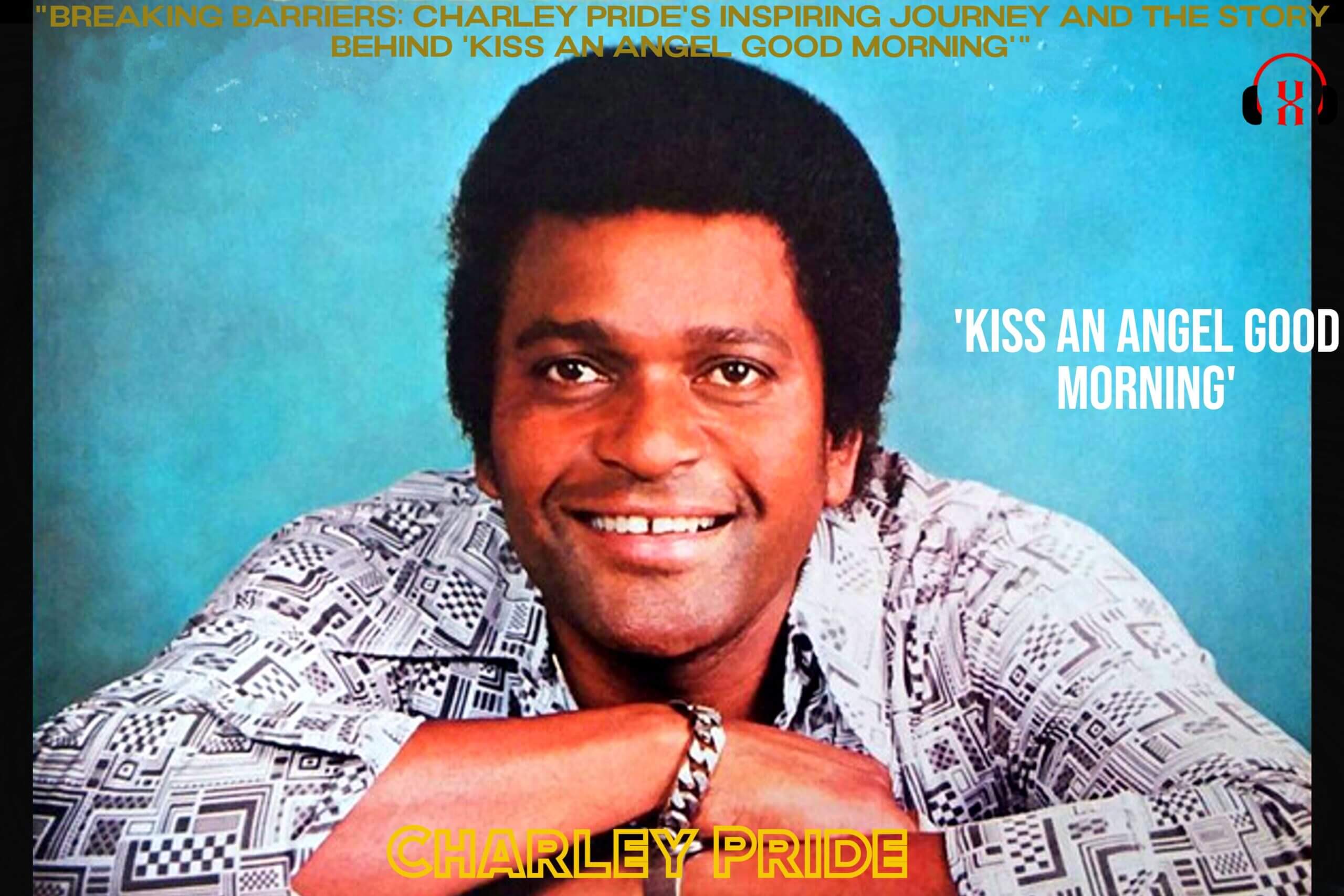![]()
Unveiling the Tale behind the Melody:
“Kiss An Angel Good Morning“
(composed by Ben Peters)
In the realm of music history, a captivating saga emerges behind the enchanting tune of “Kiss An Angel Good Morning,” as spun by the gifted country crooner Charley Pride. Back in the late blossoming of 1965, RCA, the music powerhouse, chose a subtle unveiling for their latest country artist. While they lavished descriptive accolades upon the newcomer’s prowess in both baseball and country melodies, they strangely kept his physical attributes a secret, avoiding the release of any images alongside his introductory bio dispatched to radio stations and show promoters.
Fascinatingly, Charley Pride’s initial hit, “Just Between You And Me,” echoes RCA’s stance, as they artfully concealed his race – an irony that whispers through the lines of his journey. A silent nod to the segregation that once marred the world, the label deemed it fitting to reveal that their new maestro was “tall, dark and handsome,” leaving behind a vital detail in the shadows.
However, in the grand scheme of things, except for his ethnicity, Charley Pride appeared tailor-made for a career in country cadence. Born into humble origins in the heart of Mississippi’s hinterlands, Pride’s roots intertwined with a fervor for country melodies. The strains of the Grand Ole Opry became his weekly companions, particularly the soulful ballads of Hank Williams. Another siren call came from the Louisiana Hayride in Shreveport, a tune that resonated deeply within him. Despite familial warnings and scoffs from friends asserting that pursuing hillbilly harmonies would lead him nowhere, Charley’s resolve to master the songs of the white rural South remained steadfast. The boy even procured a guitar during his teenage years, strumming and plucking to mimic his cherished country idols. Amidst the chorus of doubters, his passion for country tunes reigned supreme, paralleling his love for baseball.
As Hank Williams found a fellow admirer in Pride, he wasn’t alone. Jackie Robinson, the trailblazer who shattered the color barrier in baseball, stirred a new dream within the young Charley. No longer confined to the Negro leagues, Robinson’s legacy opened the door for Charley’s aspirations to extend beyond the baseball diamond. A fresh fervor set his course in motion.
Navigating the ranks of the Negro leagues, Pride’s journey ultimately converged with a mixed-race minor league venture in 1960. With his guitar as a faithful companion, he ventured to Helena, Montana, a move that serendipitously led to performing for both teammates and local baseball aficionados. The notes of his songs resonated, securing him a spot in a night club, where he commanded the stage before enthralled audiences. Yet, even as music beckoned with greater promise than baseball, Charley hesitated to relinquish his athletic pursuits until 1964, when the New York Mets rejected his talents. The sound of his baseball cleats against the dirt faded, but a new chapter awaited him, entwined with the harmonious notes of life.
As fate would have it, a luminary of country melodies, Red Sovine, chanced upon one of Charley’s performances, fueling the embers of possibility. Encouraged by Sovine, Charley journeyed to Nashville, where the chords of his destiny harmonized. Webb Pierce captured his essence on a demo, casting a glimpse into a future that would forever intertwine Charley’s melodies with the annals of country history. Amidst industry whispers that urged him to adopt an unconventional moniker, Charley remained steadfast in his resolve, refusing to compromise his identity.
Fortune’s winds delivered Charley’s demo tape, a treasure trove of his vocal prowess, to the ears of RCA’s A&R maestro, Chet Atkins. Charley’s talent resonated deeply, yet the revelation of his race took the room by surprise. A silent pause hung in the air before a single voice championed the cause, advocating for this unique sound to flourish. And so, Charley Pride’s odyssey under RCA’s wings commenced, a chapter that would challenge conventions and shift the paradigms of country music.
Determined to mold Charley’s unique essence into a marketable masterpiece, RCA’s promotions department grappled with the task at hand. The label wielded caution, cognizant of the cultural dynamite they held in their hands. In the era of civil rights marches and historic integrations, Charley Pride stepped onto the stage as country’s first black music luminary. Against the backdrop of nationwide uncertainty, RCA’s guarded approach mirrored the prevailing trepidation of the times. In this climate of upheaval, Chet Atkins dared to ink the signature of progress by signing Charley, a testament to his courage and conviction.
In those initial moments, Charley’s emergence onto the stage elicited awestruck silence, followed by polite applause. The shroud of RCA’s strategic marketing obscured his racial identity, a fact known to few even after his initial string of hit songs. Only when Charley addressed his audience with a grin and the words, “I guess this isn’t exactly what you were expecting,” did the whispers subside. As his voice unfurled in song, an electric fervor coursed through the crowd, igniting an enthusiasm that refused to let him depart the stage. By 1968, Charley’s aura was undeniable, outshining all contenders. In ’69, he commenced a glorious reign of six consecutive #1 singles, culminating two years later with the Country Music Association’s Entertainer Of The Year accolade. Charley Pride, once a newcomer, now stood as the industry’s paragon.
During this era of transformation, the songwriter Ben Peters also carved his path. Nurturing his craft, Peters had etched his name among Music City’s elite tune artisans. His lyrical journey bore the weight of experience, from his time in rock bands as a saxophonist to a stint in the Navy. It took years of endeavor before his compositions found a foothold. Only when Peters undertook the reins of a small music enterprise did his star begin to ascend.
Amidst life’s crescendo, Peters welcomed the birth of his daughter, Angela, a radiant presence that illuminated his world. Each morning, he bid her farewell with a kiss, a tender ritual that would unknowingly spark the flame of inspiration. On one morning commute, Peters’ introspection unfurled a song, a melody that would echo his profound sentiment about life’s blessings.
The lyrical journey took shape with the phrase “kiss an angel good morning.” This heartfelt sentiment, a daily embrace for Peters’ daughter, infused the song’s soul. Within mere months of that fateful drive, a demo of “Kiss An Angel Good Morning” graced the hands of producer Jack Clement. Charley Pride’s reception to the song was electric, an echo of his own profound connection to his wife Rozene, his pillar of support and devotion throughout the trials of his endeavors.
Amidst the reverberations of love and harmony, “Kiss An Angel Good Morning” found its release through RCA in October 1971, coinciding with Charley Pride’s crowning as the Country Music Association’s “Entertainer Of The Year.” Ascending to the zenith of Billboard’s

Artist: Charley Pride
Released: 1971
Album: Charley Pride Sings Heart Songs
Genre: Classic Country
Lyrics
When ever I chance to meet, old friends on the street
They wonder how does a man get to be this way
Always got a smiling face, anytime and any place
And every time they ask me why I just smile and say
‘Cause you’ve got to kiss an angel good morning
And let her know you think about her when you’re gone
Kiss an angel good morning
And love her like the devil when you get back home
Though people may try to guess, the secret of our happiness
But some of them never learn it’s a simple thing
The secret I’ma speaking of, is a woman and a man in love
And the answer is in this song that I always sing
‘Cause you’ve got to kiss an angel good morning
And let her know you think about her when you’re gone
Kiss an angel good morning
And love her like the devil when you get back home
Kiss an angel good morning
And let her know you think about her when you’re gone
Kiss an angel good morning
And love her like the devil when you get back home








Comment on ““Breaking Barriers: Charley Pride’s Inspiring Journey and the Story Behind ‘Kiss An Angel Good Morning'””